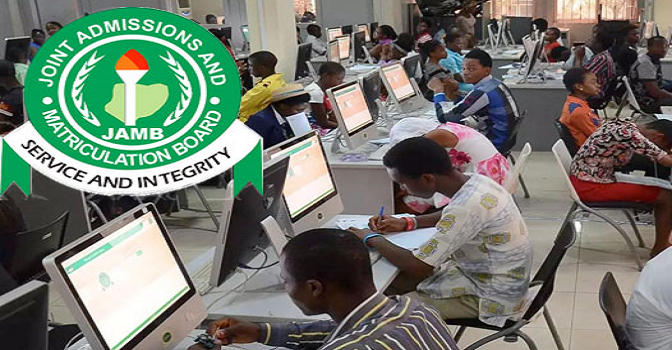Music is one of the subjects candidates can choose to write in the Joint Admissions and Matriculation Board (JAMB) Unified Tertiary Matriculation Examination (UTME). As an expressive form of art, music involves the creation and performance of sounds, melodies, rhythms, and harmonies. It serves various purposes, including entertainment, education, communication, expression, and therapy.
If you are aspiring to study music or related courses in Nigerian tertiary institutions, preparing well for the JAMB Music examination is crucial. One of the best ways to do this is by utilizing the JAMB recommended textbooks for Music. These textbooks are carefully selected to align with the syllabus and objectives of the Music examination.
In this blog post, we will provide you with the complete list of JAMB recommended textbooks for Music for the 2025/2026 academic session, along with effective strategies for utilizing these resources.
List of JAMB Recommended Textbooks for Music 2025/2026
According to the official JAMB website, the following textbooks are recommended for Music in the 2025/2026 academic session:
- Akpabot, S. E. (1986) – Foundation of Nigerian Traditional Music, Ibadan: Spectrum.
- Associated Board of the Royal School of Music (1958) – Rudiments and Theory of Music, London.
- Cole, W. (1969) – The Form of Music, London: The Associated Board of the Royal Schools of Music.
- Echezona, W. W. C. (1981) – Nigerian Musical Instruments, Enugu: Apollo Publishing Ltd.
- Ekwueme, L. (1993) – Choir Training and Choral Conducting for Africans, Lagos: Lenaus Advertising and Publishing Company.
- Holst, I. (1963) – An ABC of Music, Oxford: Oxford University Press.
- Hosier (1961) – Instruments of the Orchestra, Oxford: Oxford University Press.
- Hunt, R. (1960) – Elements of Music.
- Inanga, A. (1993) – Music for Secondary Schools Vols. I and II, Ibadan: Spectrum.
- Kamien, R. (1990) – Music: An Appreciation, London: McGraw-Hill Publishing Company.
- Kennedy, M. (1985) – The Concise Oxford Dictionary of Music (Third Edition), London: Oxford University Press.
- Kitson, C. H. (1978) – Elementary Harmony Book 2, London: Oxford University Press.
- Kofoworola, Z. O. & Lateef, Y. (1987) – Hausa Performing Arts and Music, Lagos: Nigeria Magazine.
- Lovelock, W. (1953) – A Concise History of Music, London: Bell and Hyman.
- Lovelock, W. (1996) – The Rudiments of Music, London: G. Bell and Sons Limited.
- Machlis, J. (1977) – The Enjoyment of Music, New York: W. W. Norton.
- Mensah, A. A. (Undated) – Folksongs for Schools, Accra.
- Morris, R. O. (1974) – The Oxford Harmony, Vol. I, London: Oxford University Press.
- Nketia, J. H. (1974) – African Music, New York: W. W. Norton Company.
- Palmer, K. (1965) – Teach Yourself Music, London: The English University Press Limited.
- Reed, H. O. (1954) – Basic Music: A Basic Theory Text, New York: N. Y. Mills Music Inc.
- Taylor, E. (1989) – The Guide to Music Theory, London: The Associated Board of The Royal School of Music.
- Warburton, A. O. (1955) – Graded Music Course for Schools, Books I–III, London: Longman.
These textbooks comprehensively cover various topics in the JAMB Music syllabus, including:
- Comparative Music Studies
- Elementary Harmony
- Elementary Composition
- History and Literature of African Music
- History and Literature of Western Music
- Rudiments of Music
How to Use JAMB Recommended Textbooks for Music 2025/2026 Effectively
Utilizing JAMB recommended textbooks for Music is essential, but using them effectively is the key to success. Here are some tips to optimize your study:
- Understand the Syllabus: Familiarize yourself with the JAMB Music syllabus and objectives to know what you need to study for each topic.
- Choose Wisely: Select one or two textbooks that match your learning style. You don’t need to read all the recommended books; use additional ones for reference when necessary.
- Make Notes: As you study each topic, jot down key points, definitions, terms, and signs. Utilize diagrams, charts, or mnemonics to enhance memory retention.
- Practice Past Questions: Solve past questions from the textbooks or other resources. This helps you understand the examination format and assess your knowledge.
- Regular Review: Frequently revisit your notes and revise what you’ve learned. Avoid cramming; focus on comprehension and long-term retention.
- Join Study Groups: Engage with peers in study groups or forums. Discussing ideas and sharing resources can provide valuable insights and clarification.
- Seek Help When Needed: Don’t hesitate to ask teachers or tutors for assistance with difficult topics.
Conclusion
The JAMB recommended textbooks for Music in 2025/2026 are essential resources that can significantly enhance your preparation for the JAMB Music examination. They contain relevant and reliable information tailored to the examination syllabus. However, success lies in using these resources effectively by following the tips outlined in this post.
We hope this guide has been helpful and informative for your preparations. If you have any questions or comments, feel free to leave them below!
FAQs
How do I choose the best textbooks for JAMB Music?
Choose textbooks that align with your learning style and cover the JAMB syllabus comprehensively.
Can I study without all the recommended textbooks?
Yes, you can focus on one or two key textbooks and use others as supplementary resources.
How often should I revise my notes?
Regular revision is crucial; aim to review your notes at least once a week.
Are there online resources available for JAMB Music?
Yes, various online platforms offer study materials, past questions, and discussions related to JAMB Music.
What if I struggle with some topics?
Don’t hesitate to seek help from teachers, tutors, or study groups for clarification and support.
